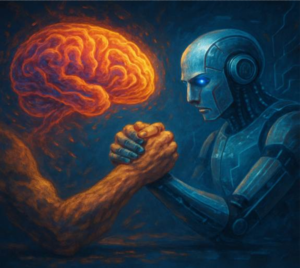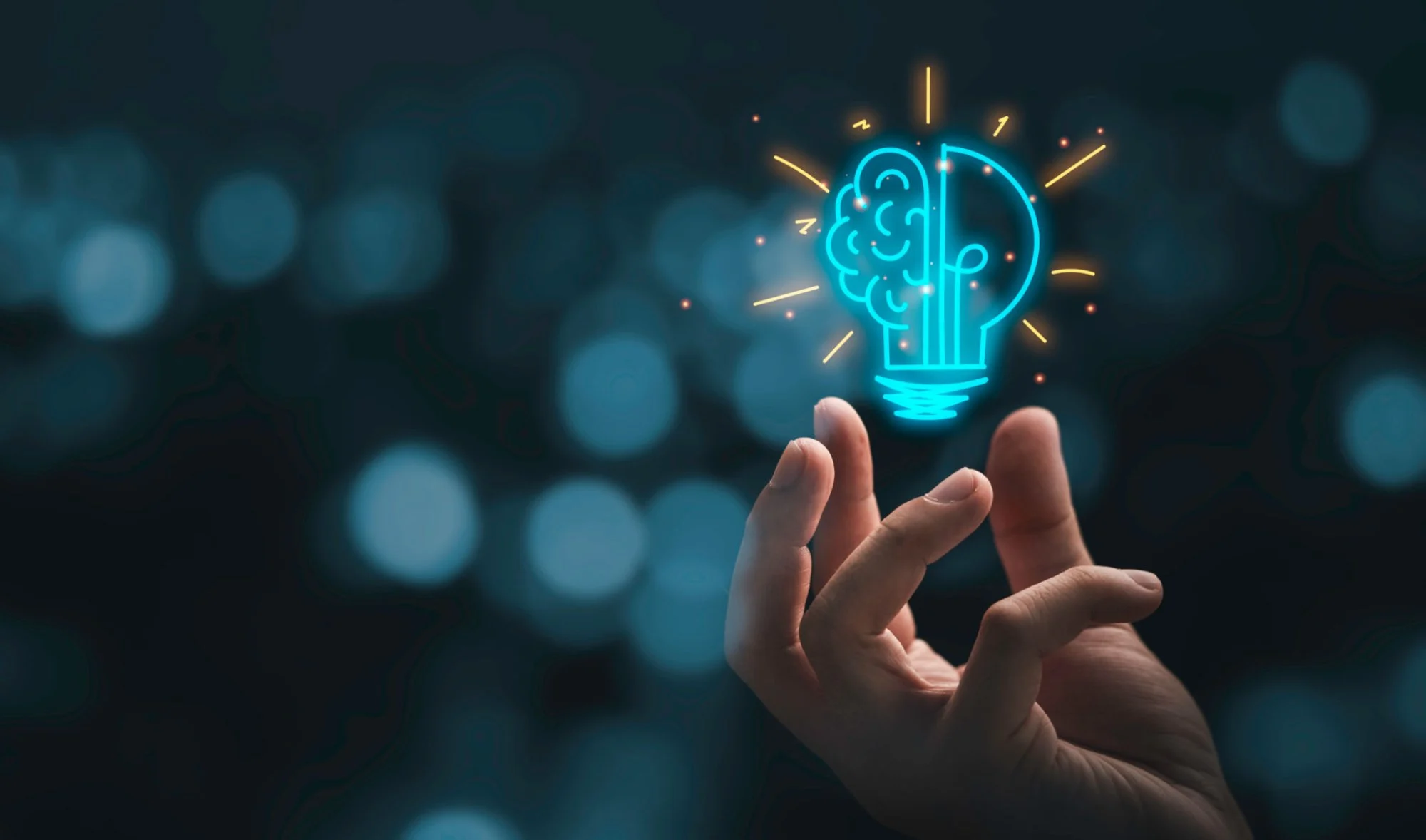Blog Summary:
Although AI can process and arrange large volumes of data at high efficiency, the imaginative usage of such data — e.g., recognizing niche business opportunities or designing customized solutions — depends on human ingenuity. Fostering a culture that promotes imagination as much as technical skill can result in better and more differentiated products in the data services space.
Introduction:
At some point between typing “AI blog titles for lazy creatives” into a chatbot and panicking because I realized my to-do list had been co-written by a machine, I experienced a small existential crisis. Are we really outsourcing originality now?
We’ve arrived at the stage where LinkedIn posts read like automated TED Talks and social media tweets are tuned to engagement rather than emotion. We’re using artificial intelligence to skim books we have not even opened, craft emails we do not even care about, and conjure up ideas we once defiantly wrote down on napkins at 2 AM.
Therefore, the question is one worth asking — perhaps even out loud:
Is there any room left for true human creativity in a world run by silicon brains?
Allow me to elaborate on this point — not as Luddites or technophobes, but as people who use AI tools every day and still trust our own instincts.

Main Content/Solution:
AI is a Remix Machine — But You’re Still the DJ
Modern AI models are trained on an internet’s worth of content. They don’t create in the truest sense — they combine. The result is often impressive: well-structured, grammatically flawless, occasionally insightful. But if we’re honest? A little monotonous.
When everyone puts prompts into the same models trained on the same data, ideas begin to resonate. Blog posts get homogenized into a single algorithmically sanctioned voice. “Innovative” product pitches suspiciously use the same talking points.
Even the CEO of OpenAI, Sam Altman, did:
“AI’s outputs are founded on the past… It’s not designed to dream something completely new. That’s still within human vision.”
And that’s the secret — AI can remix the whole history of the net, but that surprise leap, that gut-instinct gamble, that “what if we try this?” flash? That’s still yours.
The True Value of AI: Structure, Not Soul
Now, before we get all sappy about our artistic genius — we need to get real. AI is useful. I use it constantly. It maps out my learning plan, identifies holes in my knowledge, even practices the type of questions I’d otherwise save for a mentor or older brother.
It’s like having a super-organized sidekick:
• “What’s the fastest way to build foundational intuition in data engineering while working full-time?”
• “What are the key concepts a beginner should understand about vector databases?”
It responds instantly. It saves me hours.
But here’s what it never provides: depth of lived experience.
There are no spontaneous digressions that connect technical ideas to personal growth. No emotional resonance or moments of honest self-reflection. AI cannot replicate the nuanced human experience — the feeling of being captivated by an idea, or the quiet turmoil of questioning your life choices at 2 AM in front of a terminal.
That emotional subtlety — that tension between drive and doubt, between fear and flow — that’s what infuses creativity. AI brings structure, scaffolding, even inspiration. But the passion driving the work? That remains human domain.
Why Originality Isn’t Dying — It’s Just Evolving
Here’s the evolution: creativity isn’t just about creating from scratch anymore. It’s about curating, responding, and remixing intentionally.
A few years back, “originality” was about sitting in front of a blank page until something brilliant flowed out of your tormented mind. Nowadays? I can punch a half-baked idea into ChatGPT and have ten versions in five seconds. Most of them are boring. But one may irritate me enough to think, “No, that’s not it.”. What I really mean is…” And just like that, I’m writing something personal. Sometimes the friction between AI’s suggestions and our gut instinct helps us refine the path in a deeper way.
That’s the evolution:
We’re moving from pure creation to creative calibration.
AI can generate. But we — messy, emotional humans — still decide. We rearrange, reject, reinterpret. We make it ours.
This isn’t the demise of originality. It’s a remake of it. And perhaps that’s what creativity always has been — taking what there is and twisting it, emotionally, irrationally, into something it never was.
Conclusion:
Originality isn’t dying. But it is being tested — and quite frankly, that’s a good thing.
We’re being forced to consider more intently what gives an idea the sense of feeling human. Above all, originality is about emotion, instinct, surprise, and context now. AI can be your friend — even your instigator. But it’s still your turn to make the decision.
Utilize the tools. Feed the prompts. Let the drudge be automated.
But don’t stop trusting your gut with the creative process. Don’t lose that weird little hunch that says, write something, even though it’s nonsense — for now.
Your brain is still the GOAT.
Keep it weird. Keep it original.
